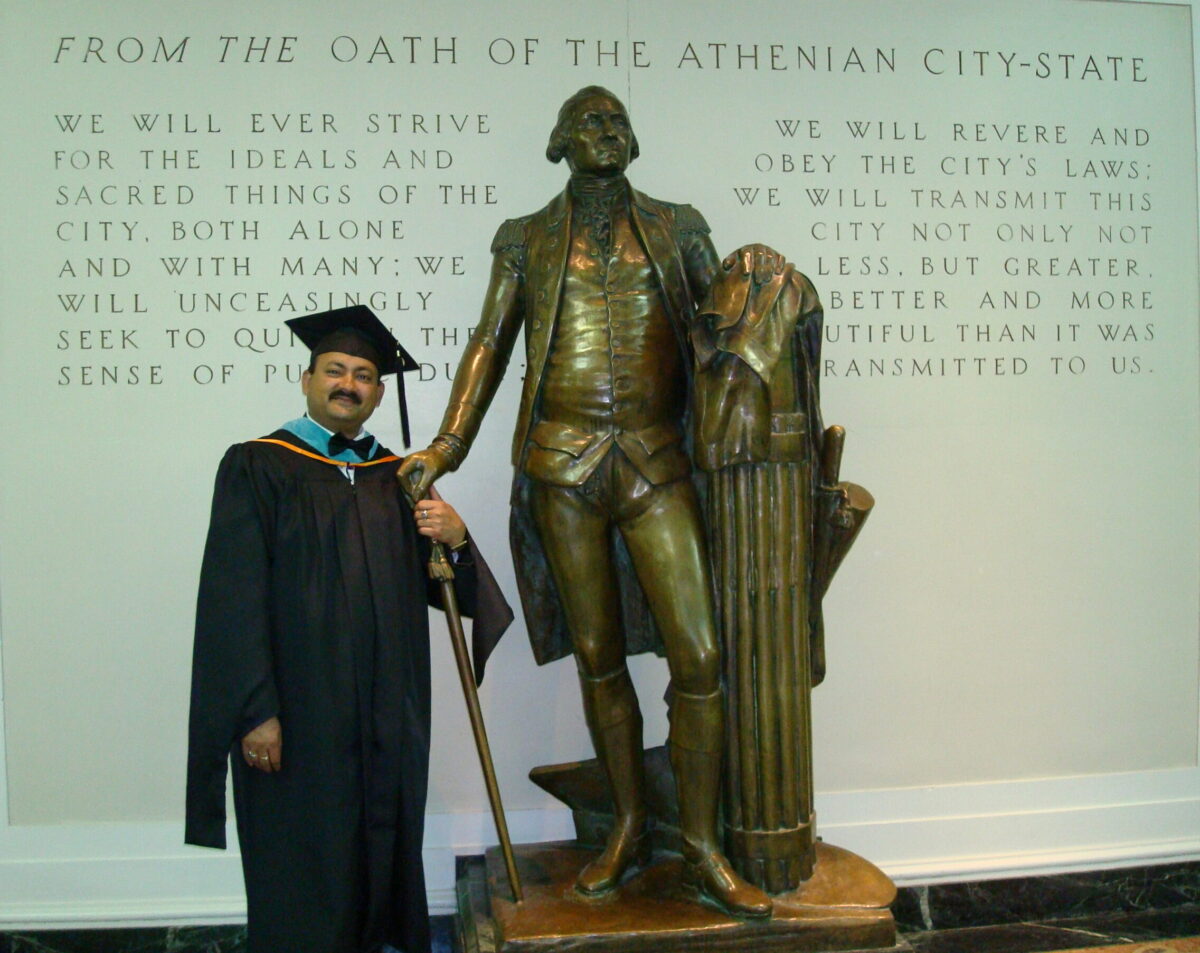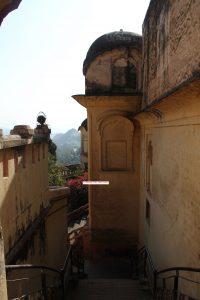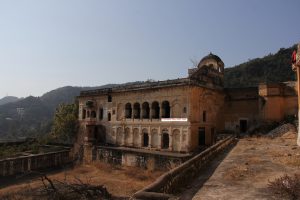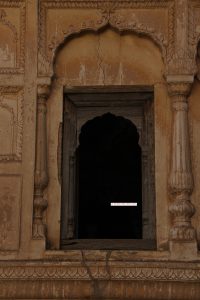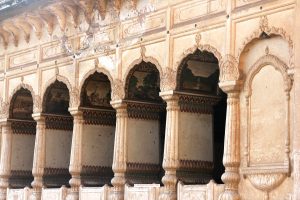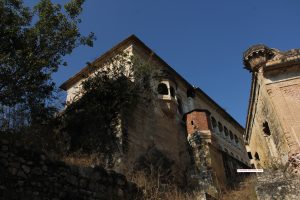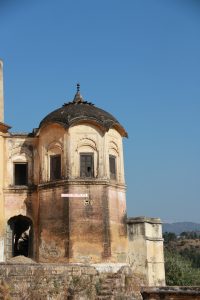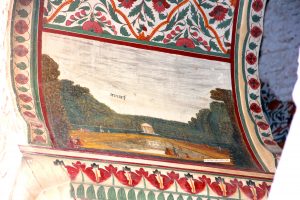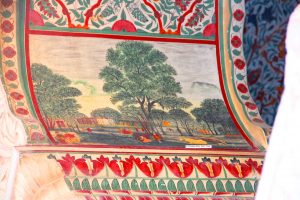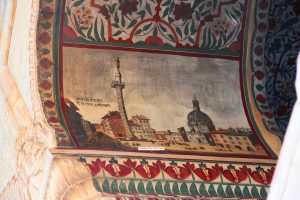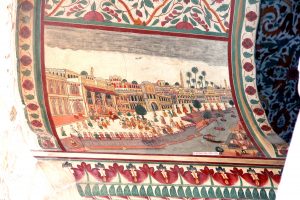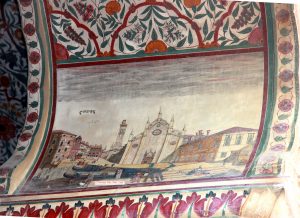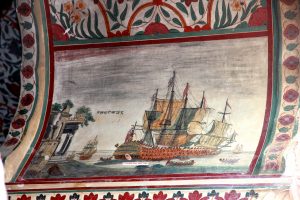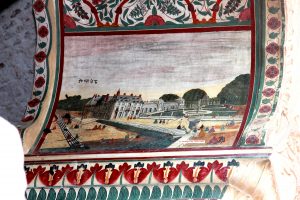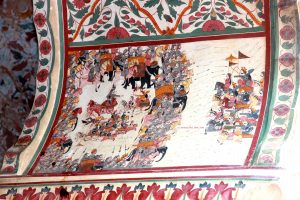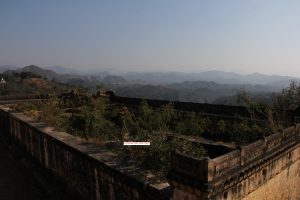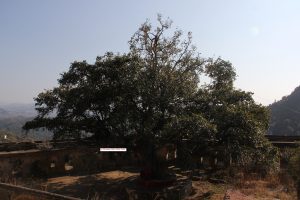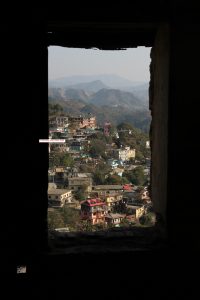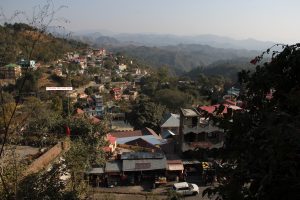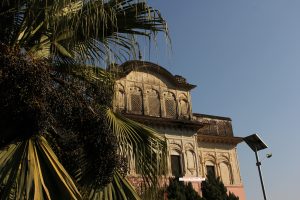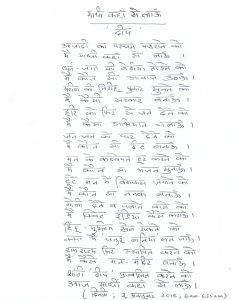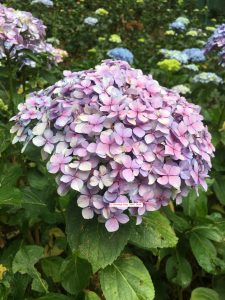Many stories are hidden within the layers of Time. What was once a kingdom, is now a fable; what was once a palace, is now ruins; what was once royalty, is now common; what was once a royal emblem, is now part of history.
Such is the story of the once powerful, once feared, once law, once hailed and once bowed down too! Everything fades away in time. Whether it is mighty possessions, unimaginable wealth, human feelings, or awe, or attachments, all, give way to the mighty layer of Time that settles all, as just another page of historical heritage, sung or unsung.
I had heard about this Arki Fort-palace, once the capital of Baghal Kingdom, now in present day Himachal Pradesh. Two hours drive from Shimla about 52 km Arki represents a bygone era. The road is the one going to Bilaspur-Mandi and at Shalaghat one has to take off to the State Highway for the residual portion of the journey. Hills looked dry in the December winter and village hamlets were warped in their humdrum existence. In far off places, nothing new happens. Seasons come and go and people brace again for the next. You grow as much, you sell as much, you make money as much as it suffices for livelihood. Tourists come and go. Some return, some never.
Baghal Kingdom dates back to 1640 AD when it was founded by the Parmars of Rajput clan. The story goes that Rana Ajai Dev, eldest son of Raja Amar Dev of Dhara, Malwa, undertook a pilgrimmage in AD and on way back from Badrinath Shrine established his own principality of Baghal in Sairi Valley. In 1643 AD Rana Sabha Chand built his capital at Arki, where it has remained till date. The formidable Gurkhas captured the territory in the early 19th Century and Rana Jagat Singh had to live in exile at Nalagarh. Here, comes the Alliance with the British of the local ruling clan, with whose assistance they drove out the Gurkhas and took control of their Kingdom. The British conferred the title of Raja upon Rana Kishan Chand and the State ranked 8th among the Punjab Hill States in order of precedence. Baghal State possessed 311 sq km of territory and sway over 413 villages. In 1893 AD it was allowed to maintain an infantry of 150 and 1 Gun.
I reached the gates and the gatekeeper asked for my visiting card and then went inside the palace premises to seek permission. I had been under the assumption that a Heritage Hotel ran from the palace, but was rudely face to face with a dilapidated structure much under the category of ruins. The erstwhile Durbar Hall and a later building were in a state of preservation but under lock. Where were the famous frescoes that I had come looking for?
Someone greeted me and I found a young handsome man in early thirties come with a girl child in his arms. He introduced himself as Rahul Dev Singh, the youngest scion of the family. His daughter Padmaja Kumari said a shy hello to me. I learned she goes to Play School in Shimla. Rahul was most intrigued by my coming all the way from Shimla just to see the frescoes. I told him that I am a student of History and am most interested in palaces and forts, even though they might present a ruined face. We made off to a great conversation right in the midst of the erstwhile palace with monkeys trying to announce dominion. I asked him about the frescoes and he showed me the arches of the Durbar Hall, which had wall paintings and frescoes, done by artists of that era. I could use a good camera and take photographs he said. The architecture definitely had Mughal and Rajasthani influence but the art was most outstandingly of the “Pahari School”.
We spoke of current day politics, my service in the bureaucracy, my writings, his lineage, his grandfather who used to hold his Durbar right there in a Hall, the wars his family had fought, the Gurkha occupation of their kingdom, the regaining of it with the help of the British, the ranking of the State amongst the Punjab States, my sons and their field of education, and many other things. I told him of my bloodline from mother’s side going up to a Kingdom of North Bengal. He also told me that they were originally from Malwa. It never seemed that I had met him for the first time and there existed some connection of the past. He told me how his grandfather encouraged the family ladies to cut their hair, learn dance and have a modern lifestyle. Now, he felt he had become a modern traditionalist and also like the common people believe in common superstitions. We laughed as I admitted that I too never cross a path if I see a black cat run across ahead of me. I wait for someone else to do it. We laughed as we have no justification for all this, but still irrationally we keep doing it. Sometimes the commonness of living overtakes us as much as we would consider ourselves to have a royal lifestyle.
Suddenly, he thought he might be holding me back from my exploration so politely took leave, “So, when you finish you will take your leave?”
“Yes”, and many thanks Rahul. If you come to Delhi please come home.”
He disappeared with his lovely daughter inside the palace living portion and I was left to face the ruins in solitude.
The Durbar Hall arches had beautiful frescoes of Goa Port, War Scene, Dagshai, a Cathedral which reminded me of The Vatican, an Indian Fort, Ayodhya, an European port, the port of Daman, warship anchoring at Thalaserry port, etc. The arches had been painted both sides. We get a feeling that the artists had a good impression of Indian and European ports, albeit they did not miss out on the Indian fort and garden. The war scene fresco had been done in very fine lines and showed arrows flying both sides in such detail.
The administrative block to the right of Durbar Hall was overgrown with shrubs and the steps led down to the horse and elephant housing area.
Right in the midst stood a Peepal Tree, magnificent and a witness to all that glory that was once there. Below, it a small temple with a tiny Shivlinga had been built, perhaps by the Home Guards who loved there for a long time.
The view up, to the palace was a telling one, as it took the glance from ruins to a living palace structure. Time, can change many things, but not everything. Far ahead the valley opens to face many mountains placed in a row.
How strange it must feel to face a truth every sight that here was one’s own kingdom and palace and now a different reality. The reality of a peoples’ democracy and a system of choosing a leader through public ballot. I, for one, could go mad with such strange truths, had I to live with them every day of my life.
Rahul’s elder brother Harvashvardhan, is trying to restore the palace premises by way of opening up a Heritage Hotel, which is a great way to preserve and conserve a slice of history for posterity. The grandeur of the days must be re-created and visitors experience how life was lived then and how that memory is preserved now.
The things of the past do shape our future and should be allowed to sweeten our present days.
